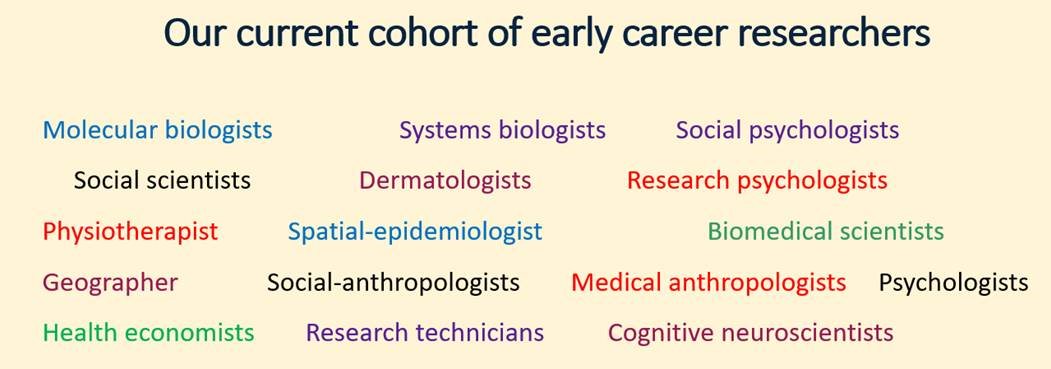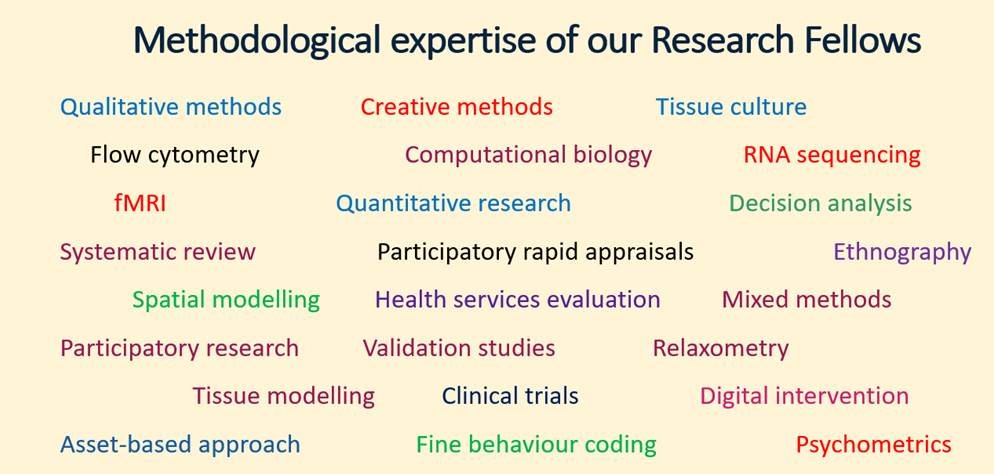ECR definition
There is no single UK-wide definition of an Early Career Researcher (ECR). At BSMS, we use a practical definition focused on career stage and support needs.
At BSMS, Early Career Researchers are members of staff employed on a research-focused contract (fixed term or open-ended) who are in the early stages of building research independence and a track record of leading or co-leading research. This typically includes Research Assistants, Research Associates, Postdoctoral Research Associates, and Research Fellows, and may also include early-stage academic staff whose roles involve a substantial research component.
Doctoral researchers (for example, PhD candidates) are usually supported through doctoral training routes. Some BSMS development activities may be open to both staff and doctoral researchers where appropriate.
“Early career” is not defined only by job title or years since PhD, and we recognise non-linear career paths. Where a time-based definition is needed for eligibility to specific opportunities, BSMS will typically use an indicative window consistent with common UK funder approaches, for example, within 8 years of PhD award or equivalent professional training, or within 6 years of first academic appointment, with adjustments for career breaks and part-time working.
We aim to support ECRs through training, representation, career development and access to relevant opportunities, and we welcome contact from any research staff member who would benefit from this support.
Further definitions of ECR from the perspective of the REF and UKRI are as follows:
REF definition:
For the purposes of the Research Excellence Framework (REF), an individual is deemed to have started their research career from the point at which they held a contract of employment of 0.2 FTE or greater, which included a primary employment function of undertaking ‘research’ or ‘teaching and research’, with any higher education institution or other organisation, whether in the UK or overseas, and they undertook independent research, leading or acting as principal investigator (or equivalent) on a research grant or a significant piece of research work. REF ECR eligibility is defined in relation to the relevant REF census period and the specific REF guidance for the exercise.
Source: www.ref.ac.uk
UKRI definition:
When we provide information to support the development of early-career researchers, we are addressing anyone who identifies as an ECR. For the purpose of grants eligibility for most of our schemes, Arts and Humanities Research Council (AHRC) defines an ECR as someone who is either: within eight years of their PhD award (this is from the time of the PhD ‘viva’ oral test), or equivalent professional training within six years of their first academic appointment (the first full or part time paid employment contract that lists research or teaching as the primary function). These periods exclude any career breaks, such as those due to family care, health reasons, or COVID-19-related factors, including home schooling or increased teaching load.
Source: www.ukri.org
See some of the specalties and methodological expertise of the ECRs at BSMS in the images below.

